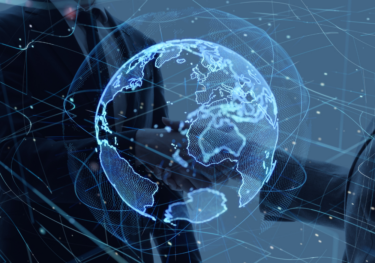Thriving beyond boundaries: Human performance in a boundaryless world
In collaboration with Deloitte

We’re operating in a world where work is no longer defined by jobs, the workplace is no longer a specific place, many workers are no longer traditional employees, and human resources is no longer a siloed function. These boundaries, once assumed to be the natural order of things, are falling away and traditional models of work are becoming boundaryless.
Many of the technological changes happening now—the emergence of generative artificial intelligence, the rise of virtual worlds and even virtual replicas of our own selves, and the development of neurotechnology that can now quantify the brain—may seem like they’ve been plucked straight of the pages of a science fiction book, but these concepts are already becoming an everyday reality. It’s a time of uncertainty, shaped by unpredictable global events, lightning-fast advances in technology and AI, evolving workplace cultures and markets, growing worker mental health and well-being concerns, and transformative shifts in how people think about work and the workplace.
Deloitte’s 2024 Global Human Capital Trends survey polled 14,000 business and human resources leaders across many industries and sectors in 95 countries. In addition to the broad, global survey that provides the foundational data for this report, Deloitte supplemented its research this year with worker- and executive-specific surveys to represent the workforce perspective and uncover where there may be gaps between leader perception and worker realities. The executive survey was done in collaboration with Oxford Economics to survey 1,000 global executives and board leaders in order to understand their perspectives on emerging human capital issues. This research reveals that a focus on the human factor is emerging as the bridge between knowing what shifts are shaping the future of work and doing things to make real progress toward putting them into action to create positive outcomes.
The experts behind the research
Our Thought Leadership team produces original, evidence-based research made accessible to decision-makers and opinion leaders. Principals for this project included:

Edward Cone
Editorial Director, Thought Leadership

Sundus Alfi
Senior Research Manager, Thought Leadership

Aidan O’Farrell
Research Associate, Thought Leadership
Tags:
You might be interested in

Champions needed: Building Digital trust in a dangerous world
Recent research from Oxford Economics in collaboration with SGTech shows that digital trust, once considered the purview of IT and cybersecurity, now stretches beyond those traditional roles to all parts of an organization, requiring a highly trained workforce that has both technical and more general digital business skills.
Find Out More
The Digital Trust Workforce: Global Edition
In collaboration with SGTech, The Digital Trust Workforce: Global Edition consolidates insights from our survey and expert conversations, providing actionable steps for organisations hoping to close the digital trust skills gap and leverage digital trust.
Find Out More
Impact AI: Enterprise AI Maturity Index 2024
Oxford Economics and ServiceNow fielded a global survey of 4,470 executives at organizations where artificial intelligence capabilities are in use.
Find Out More
The Hidden Costs of Downtime: The $400B problem facing the Global 2000
Downtime and service degradation create a cascade of consequences, costing Global 2000 companies $400B annually. But that figure doesn’t account for what’s below the surface. The actual cost is much larger when we consider downtime’s broader impacts.
Find Out More